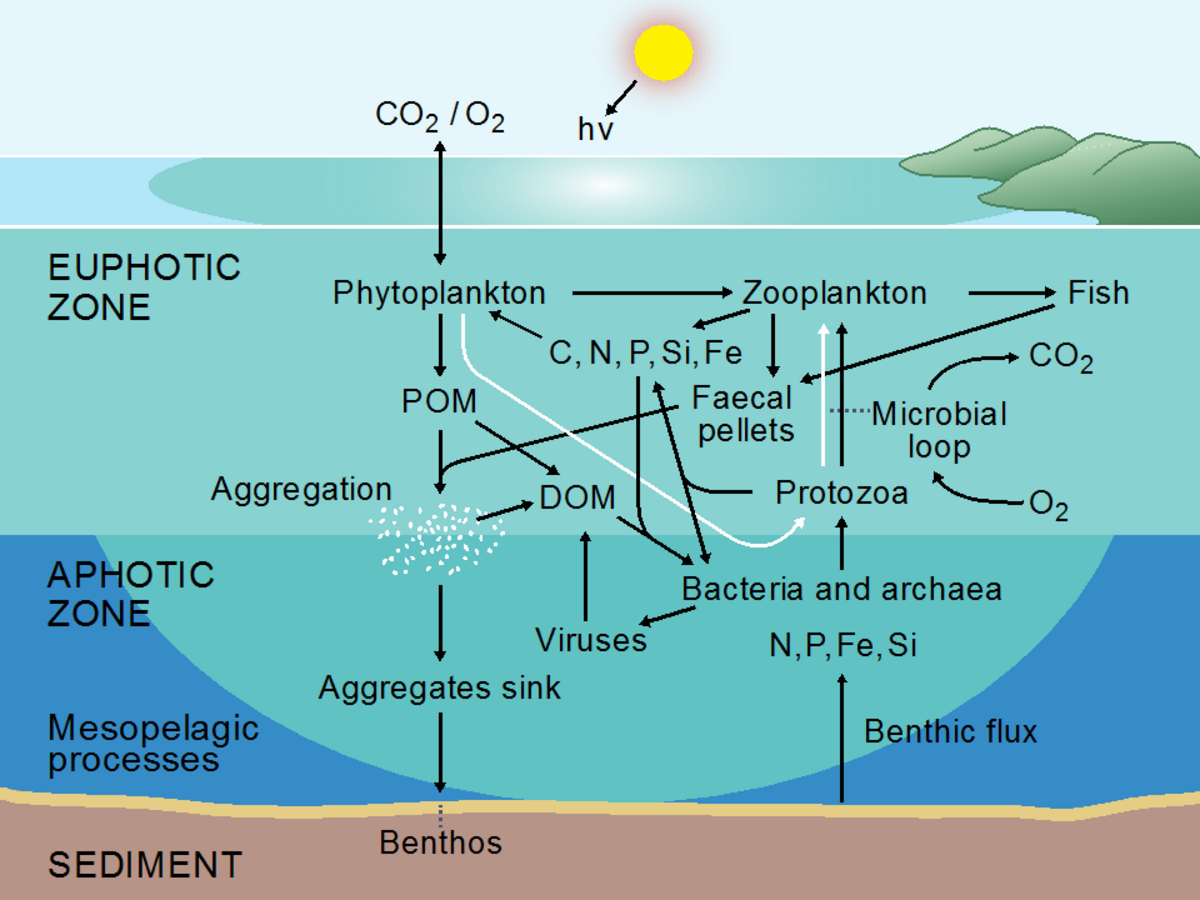The research unit Biological Oceanography focuses on responses of marine plankton to ocean change, their impacts on ecosystem functioning and their consequences for biogeochemical cycling. It aims at (1) achieving a mechanistic understanding of ocean change sensitivities of key biological processes at the organism level, (2) assessing the potential of evolutionary adaptation in mitigating short-term physiological responses, (3) elucidating how organism responses play out at the community and ecosystem level in shaping trophic interactions and food web efficiencies, and (4) unravelling how changes in ecosystem composition and functioning impact biogeochemical cycling.
Marine microorganisms control biogeochemical exchange processes between the surface ocean and the atmosphere as well as between the surface ocean and the deep sea. To investigate the microbial cycling of dissolved and particulate organic matter our studies address processes of production and exudation, uptake and respiration, as well as aggregation and export of particles.
Research approaches include compound and size specific analyses of organic matter combined with microbial rate measurements, incubation experiments, culture studies with single species/strains under well-controlled laboratory conditions, field experimentation using an in situ mesocosm platform, field surveys across natural gradients of key environmental parameters to substitute space for time, and numerical modelling of ecosystem and biogeochemical processes. Our field studies take us from the ice-covered polar region to the warm tropical seas.



